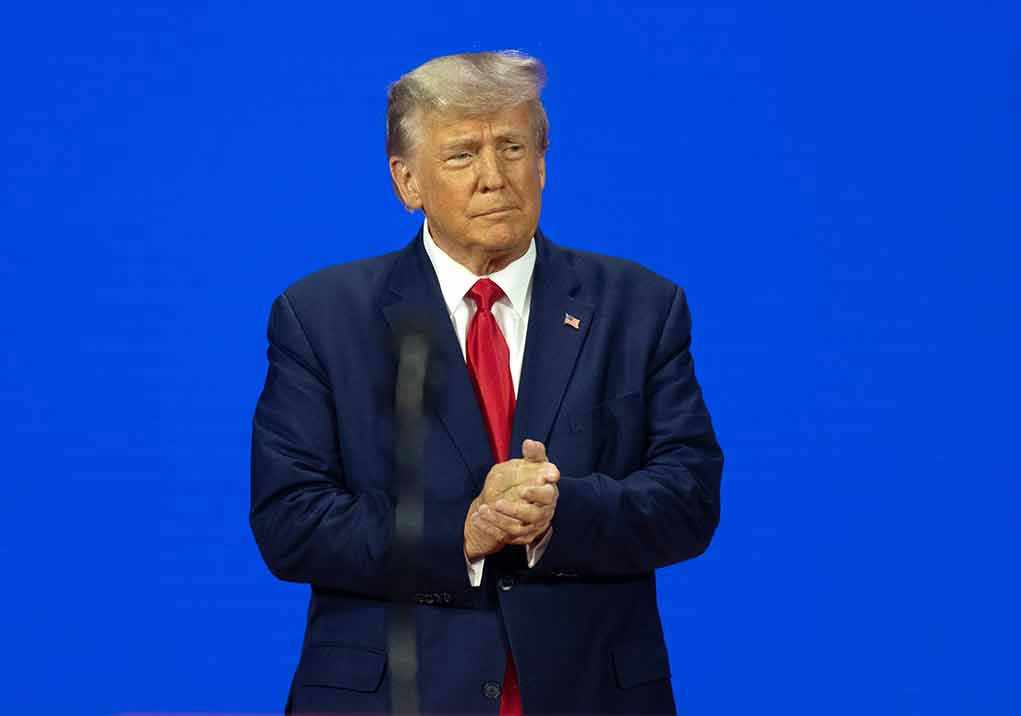
For the first time in decades, a U.S. president has directed the federal government to buy a near 10% stake in a major tech firm—raising crucial questions about the future of American industry and government power.
Story Highlights
- President Trump announces U.S. government acquisition of a nearly 10% non-voting stake in Intel for $8.9 billion.
- The investment is justified as a move to secure domestic semiconductor supply chains and bolster national security.
- This marks an unprecedented direct government equity stake in a leading U.S. technology company outside of crisis bailouts.
- Supporters see the deal as vital for technological sovereignty; critics warn of expanded government influence over private industry.
Trump’s Intel Deal: Historic Stake or Government Overreach?
On August 22, 2025, President Trump revealed that the U.S. government would acquire a nearly 10% equity stake in Intel, funded by redirecting unpaid CHIPS Act grants and new allocations from the Secure Enclave program. The $8.9 billion deal, announced after a direct meeting between Trump and Intel CEO Lip-Bu Tan, is structured as a non-voting, non-governance stake—meaning Washington holds significant financial interest but cannot dictate Intel’s operations. This move is positioned as a safeguard for national security and a guarantee of domestic control over critical semiconductor supply chains, after years of warnings about reliance on foreign manufacturers and the vulnerabilities exposed during the pandemic.
Intel, once the undisputed leader in chip manufacturing, has struggled in recent years, falling behind global rivals like TSMC and Samsung. Despite receiving billions in government incentives since the CHIPS and Science Act of 2022, Intel has faced delays and setbacks, especially at its U.S. R&D campus in Oregon. Both the Trump and former Biden administrations identified domestic semiconductor independence as a strategic priority, citing growing threats from China and persistent global chip shortages. The government’s direct investment in Intel is a sharp departure from the usual approach of providing grants or contracts, instead giving Washington a seat at the table—albeit without formal voting power. This arrangement underscores the urgency policymakers see in regaining technological leadership and shoring up national security.
Key Stakeholders and the National Security Justification
The Trump administration, Intel, and the Departments of Commerce and Defense are central figures in this deal. Trump has framed the move as a patriotic partnership, declaring, “I think it would be good having the United States as your partner.” Intel CEO Lip-Bu Tan credits Trump’s focus on manufacturing for driving “historic investments” in a sector critical to economic and security interests. For the Defense Department, secure, domestically produced semiconductors are non-negotiable for military and infrastructure needs. Meanwhile, international attention has grown, with SoftBank recently disclosing a smaller 2% stake in Intel. While the government’s equity does not confer governance rights, its sheer size grants indirect leverage, pressuring Intel to deliver on government-backed projects and restore American dominance in chipmaking.
Structurally, this stake is unprecedented outside of major bailouts such as those in the 2008–09 auto industry crisis. By making the stake non-voting, the administration aims to walk a line between strengthening U.S. control and avoiding direct interference in the private sector. Yet, this model may set a powerful precedent for future interventions in industries deemed vital to national interests.
Economic and Political Implications: Security or Slippery Slope?
The immediate impact of this deal is a significant capital infusion for Intel, potentially stabilizing thousands of American jobs and accelerating domestic chip production. Industry analysts call the agreement “historic,” noting its potential to reshape public-private partnerships in high-tech sectors. Supporters argue that government investment is necessary to safeguard supply chains and ensure the U.S. maintains a technological edge over adversaries. Critics, however, warn of possible government overreach, the risk of politicization, and the erosion of free-market principles. If government stakes in private firms become normalized, it could blur the boundaries between public and private sectors, raising concerns about increased surveillance, regulatory creep, and the dilution of shareholder rights.
In the broader context, this deal signals a shift toward industrial policy reminiscent of past eras, departing from decades of limited government involvement in business. The long-term consequences remain uncertain; if Intel rebounds and leads global innovation, the move may be vindicated. But should government involvement stifle competition or innovation, critics’ warnings about creeping state power and diminished constitutional freedoms may gain traction. What is clear is that this moment has triggered a new era in the American approach to strategic industries—one that will demand vigilant oversight from citizens concerned about both national security and the preservation of liberty.
🚨💻 Trump Announces U.S. Stake in Intel | Washington, D.C. | Aug 22, 2025 (UTC)
Trump says America now owns 10% of Intel — worth $11B — at no cost.
But a Senate letter shows deep security concerns over Intel’s new CEO and China ties.What’s New
•🕑 Announcement dropped Aug… https://t.co/kwhLRSNOQ2— Gunnys Adventures (@DerrickSalas9) August 23, 2025
As the funds are set to transfer and shares to be issued, the eyes of both Wall Street and Main Street are on Intel and Washington. Whether this partnership will strengthen American industry or open the door to expanded federal power is a debate that will define the years ahead. Conservative Americans, who value free enterprise and limited government, will be watching closely to ensure that this historic step does not become a slippery slope toward more centralized economic control and the erosion of foundational rights.
Sources:
Intel, Trump announce unprecedented U.S. government stake
Intel and Trump administration reach historic agreement

